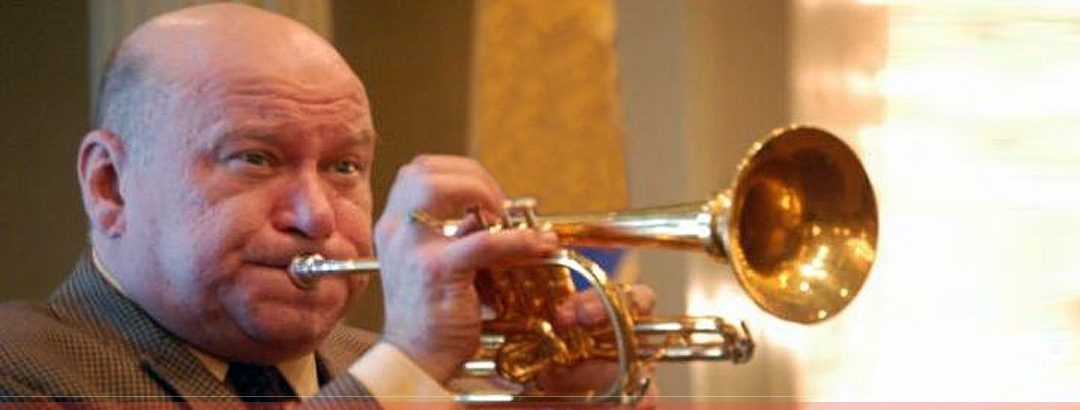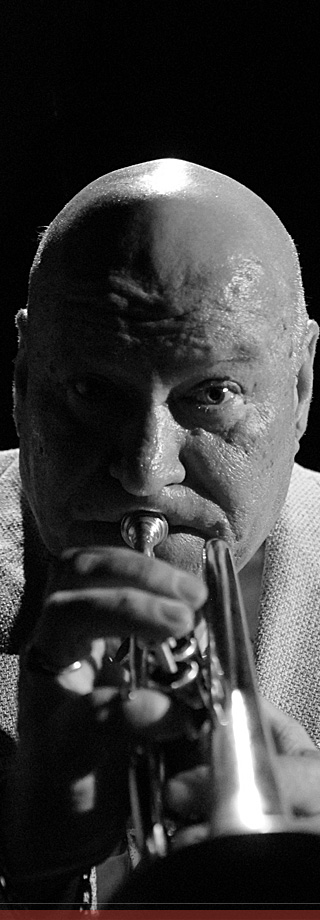
Warren Vaché
Jazz Cornetist, Recording Artist & Educator
Vaché is a supremely accomplished, versatile and rare performer. He has been astounding audiences worldwide for decades with his superb cornet, trumpet and flugelhorn stylings. Through live performances and recordings, along with stage, screen, radio and television appearances, Warren conveys incredible warmth through his burnished tone and intelligent improvisations.
He has performed and recorded with such luminaries as: Benny Goodman, Rosemary Clooney, Benny Carter, Hank Jones, Gerry Mulligan, Woody Herman, Ruby Braff and Bobby Short to name but a few. Also, with such leading contemporaries as: Phil Woods, Jon Faddis, Terrell Stafford, Howard Alden, Jessie Davis, Alvin Queen, Brian Lemon, John Allred and the Lincoln Center Jazz Orchestra…the list is a virtual “Who’s who” in Jazz.
Coupling a beautiful tone with a chance-taking style, Warren utilizes the complete range of the jazz vocabulary. His influences include: Louis Armstrong, Ruby Braff, “Pee Wee” Erwin, Roy Eldridge, Bobby Hackett, Clifford Brown, Blue Mitchell, and Billy Butterfield – from this group of extraordinary musicians Mr. Vaché has coalesced his own inimitable style that defies categorization.
Mr. Vaché has recorded over 35 albums under his own name including the award winning “2gether” with Bill Charlap and many other highly acclaimed albums such as: “Polished Brass”; “Easy Going”; “Warm Evenings”; “Horn of Plenty”; “An Affair to Remember”; “The Best Thing For You”; “Mrs. Vaché’s Boys” (with Allan Vaché); “Warren Plays Warren” (with Randy Sandke); “What Is There To Say” (with Joe Puma); “Swingtime” with the NYC big band; “Dream Dancing”; and “Don’t Look Back” with the Scottish Ensemble.
With a style that has been described as “lyrical,” ‘daring,” “warm,” and “exciting,” Warren Vaché has a delightful way of engaging and audience; leaving them enthralled with the beauty and joy of his playing, and the warmth of his vocals.
For additional information please visit:
– http://warrenvache.com
Warren Vaché Plays After You’ve Gone
The Styling Of Improvisation According To Jazz Master Warren Vaché
Why did you choose music as your career?
It chose me. My Dad had a huge record collection so I grew up hearing Louis Armstrong, Bobby Hackett, Roy Eldridge and Billy Butterfield. I wanted to play like them.
Did you ever want to give up on playing music?
Every time I hear myself on a recording. No, not really, I’ve had a fortunate life and career, and worked with many of my idols.
Where you classically trained then switched to jazz and commercial music?
I was taught by many good teachers, Jim Fitzpatrick was the first and Pee Wee Erwin. I got a degree in Music Education from Montclair State University in New Jersey. I paid my way through school playing weddings and club dates.
On days when you are not performing or rehearsing how long do you practice for?
I never time it. I warm up and play until I need to do something else, or I get tired.
What do you mostly work on when at home practicing?
I start with Schlossgerg, and Clarke, move on to some etudes, and then possibly work on a tune with changes that challenge me.
How long where you studying/playing jazz before your solos started sounding cohesive and professional?
Probably a long time. Working with the likes of Hank Jones, Benny Goodman, Urbie Green and Zoot Simms certainly helped the process. Frankly, most days I feel I’m still working on it.
What kind of scales and patterns do you practice?
None.
When you are improvising are you thinking about scales or are you simply playing melodies and ideas that are playing in your head?
Simply playing melodies and ideas? That sure makes it sound easy, it ain’t. In the words of Zoot Sims: “ I try to think about what I’m doing.”
When soloing, do you have the chord changes memorized or do you simply have an idea of shapes and colors of the tune?
Once again, SIMPLY? It’s probably a combination of both. Keeping your ears open to the rhythm section certainly helps.
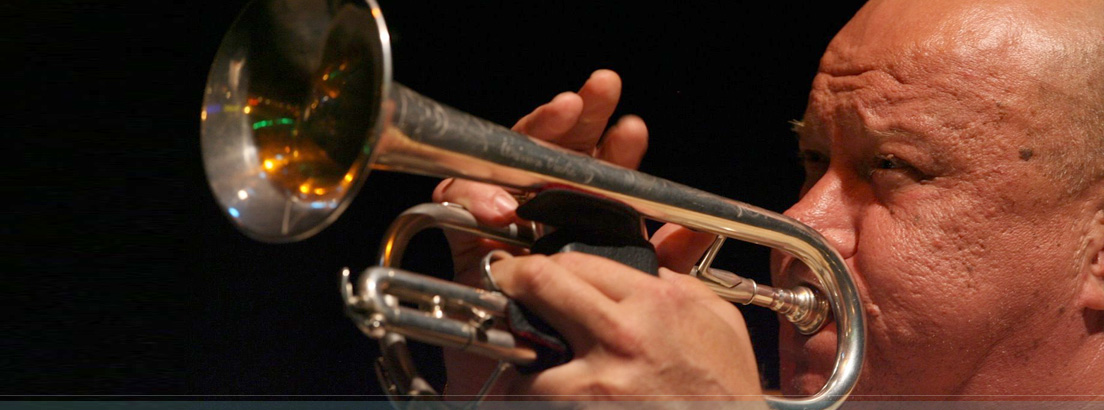
Are you normally not really concerned with the actual chord changes?
Actual chord change? That’s the pianist’s or guitarist’s and the bassist’s territory. An F7 becomes a Dm b9 with a D in the bass. I try to play a line that weaves a melodic way through all of that. Knowing a change is helpful but not necessarily of paramount importance.
Do you write some ideas for the solo before heading to the studio?
NO.
Do you prefer to play with your own band or with other groups?
I like working. Sure I’d like to use my own band if I can, but it’s not always possible these days.
Do you ever run out of ideas when playing a solo?
NO. There is no reason to.
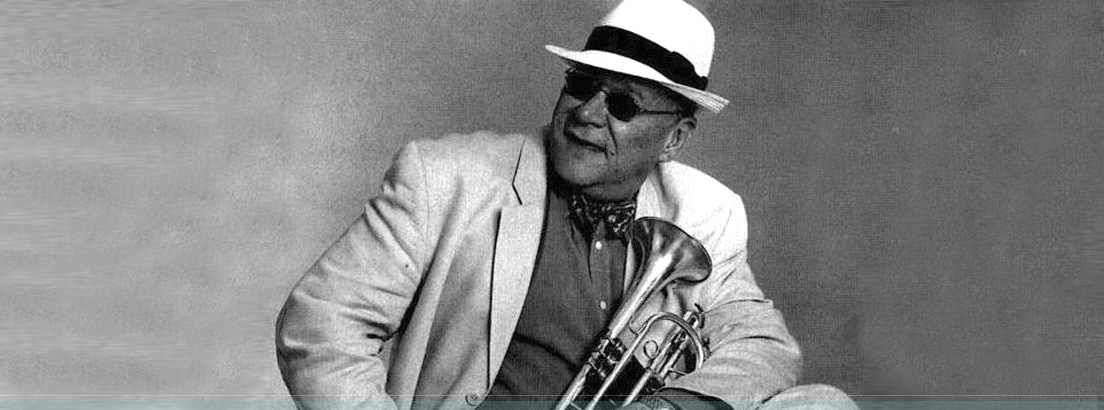
Do you approach your playing any different if you are playing with your big band as opposed to as a soloist in somebody else’s group?
Nope, I try to do my job.
Who do you listen to for inspiration?
Many many people.
Do you enjoy teaching or do you prefer to be out recording and playing instead?
I enjoy both experiences. You can learn a lot from a student, and I enjoy talking shop.
When recording, do you go for the first solo or do you do a few takes of the solo until you are happy with the result?
I don’t work out my solos before hand. I have been known to use pro tools and overdub on occasion but every solo is different.
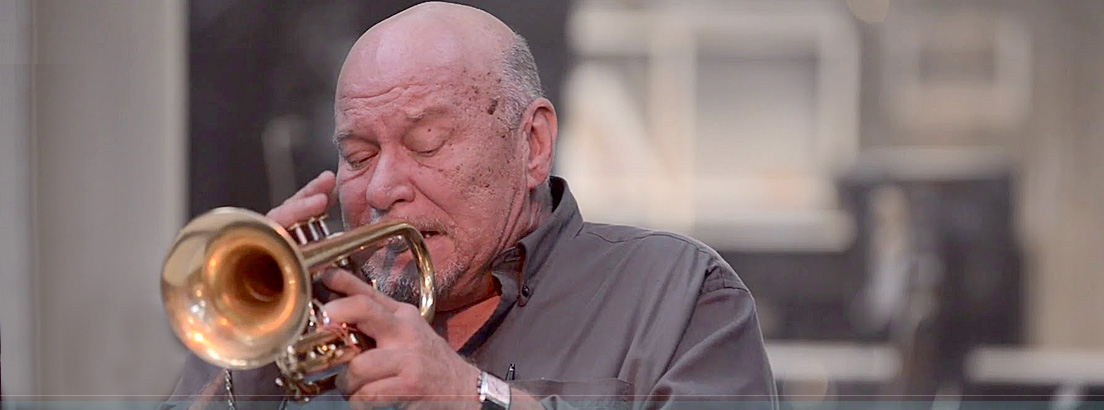
What equipment are you currently playing?
I play a Yamaha student model cornet and a Warburton 5SV mouthpiece with a 6* backbore.
Do you select different equipment depending on the group or what the job calls for?
NO.
How much time and effort do you put into composing?
Minimal.
When composing do you work out a progression then a melody or does the melody come first?
I try to follow the melodic line.
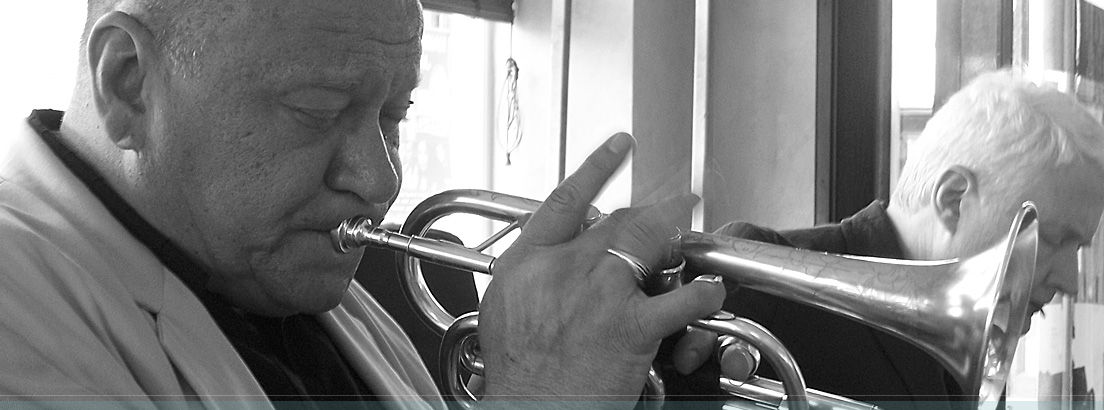
Do you have a formula you follow when working on new compositions?
No.
Do you do the arrangements for your own compositions or do you delegate that to someone else?
Most of the people I record with are wonderful musicians. What they come up with in a studio is better than anything I could tell them to play.
Of all your compositions, is there one that is your all-time favorite?
No.
How much time and effort did it take you to complete your latest album?
About a week getting Benny Carter’s lead sheets together, 7 hours in the studio and another 4 or 5 to mix.
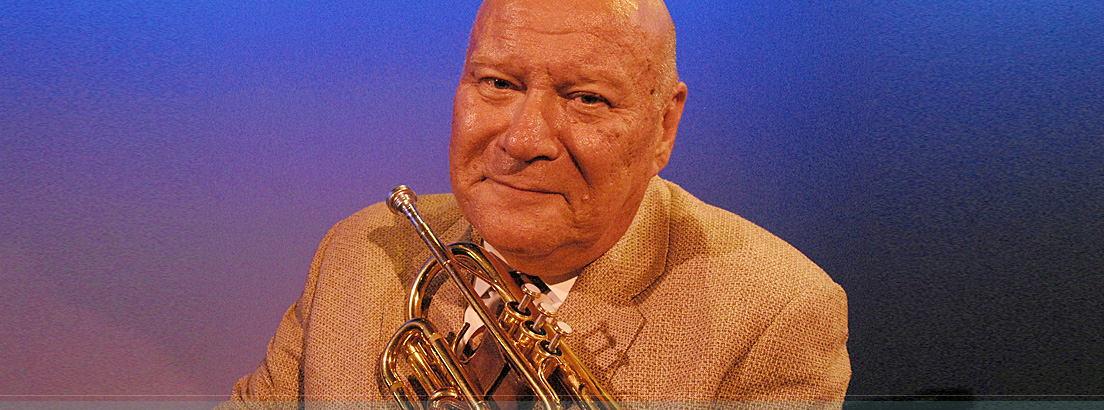
Now that you are an established soloist, what is your biggest career challenge?
Keeping working.
Serious music students use your solos as part of their learning tools, how do you feel about that?
I suppose you can learn a lot from another’s mistakes. God knows i’ve recorded enough of them.
Did you ever imagine your solos would have such an impact on others?
No. Still not so sure they do.
Best advice you would give to an upcoming player?
Practice, and take a serious look at the business of music these days. Have an idea where you want to go and what you want to do.
Best tip for anyone learning the art of improvisation?
Use your ears! Work it out on your instrument, you can always learn to write it down later.
Warren Vaché’s Solo on I Can’t Get Started
From the Album I Can’t Get Started (feat. Dave Cliff, Spencer Brown & Clark Tracey)
